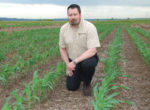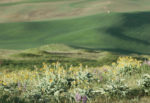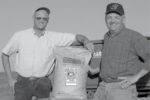Advertise Follow Us
Items Tagged with 'Sustainable'
ARTICLES
A Permanent Pathway For Long Term, Sustainable No-Till
Reduced compaction and higher yields await no-tillers who overcome equipment and technology challenges to adopt controlled-traffic systems.
Read More
25 Years Of Unlocking Secrets To No-Till Success
Since 1988, the Graves-Chapple Research Center has been helping no-tillers in northwestern Missouri fine-tune their corn-and soybean system management and farm their no-tilled acres more sustainably.
Read More
No-Tillers Ready To Cash In On Certification
This program will recognize no-tillers that adopt economically viable, sustainable practices to protect the environment and add value to their grain crops.
Read More
Fertilizing Based On Yield Potential, Not Goals
Considering more data than just a soil test allows North Dakota no-tiller Mike Zimmerman to dial in fertility applications for current conditions.
Read More
No-Till And Organic Techniques Coming Together Out East
Thirty years of research, trial and error and changing attitudes, along with improved equipment, are setting the stage for grower success.
Read More
Washington No-Tillers Connect Sustainable Farming With Consumer Attitudes
By delivering specialized food products, these no-tillers see a bright future for farming.
Read More











